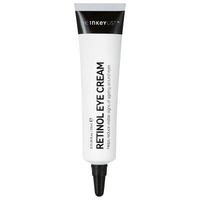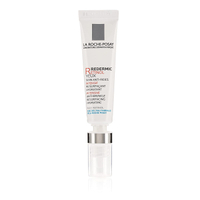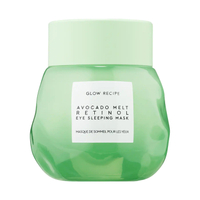The top five benefits of retinol eye cream
Want to know what retinol eye cream can do for you? Here's everything you need to know—plus the best retinol eye creams that won't cause irritation
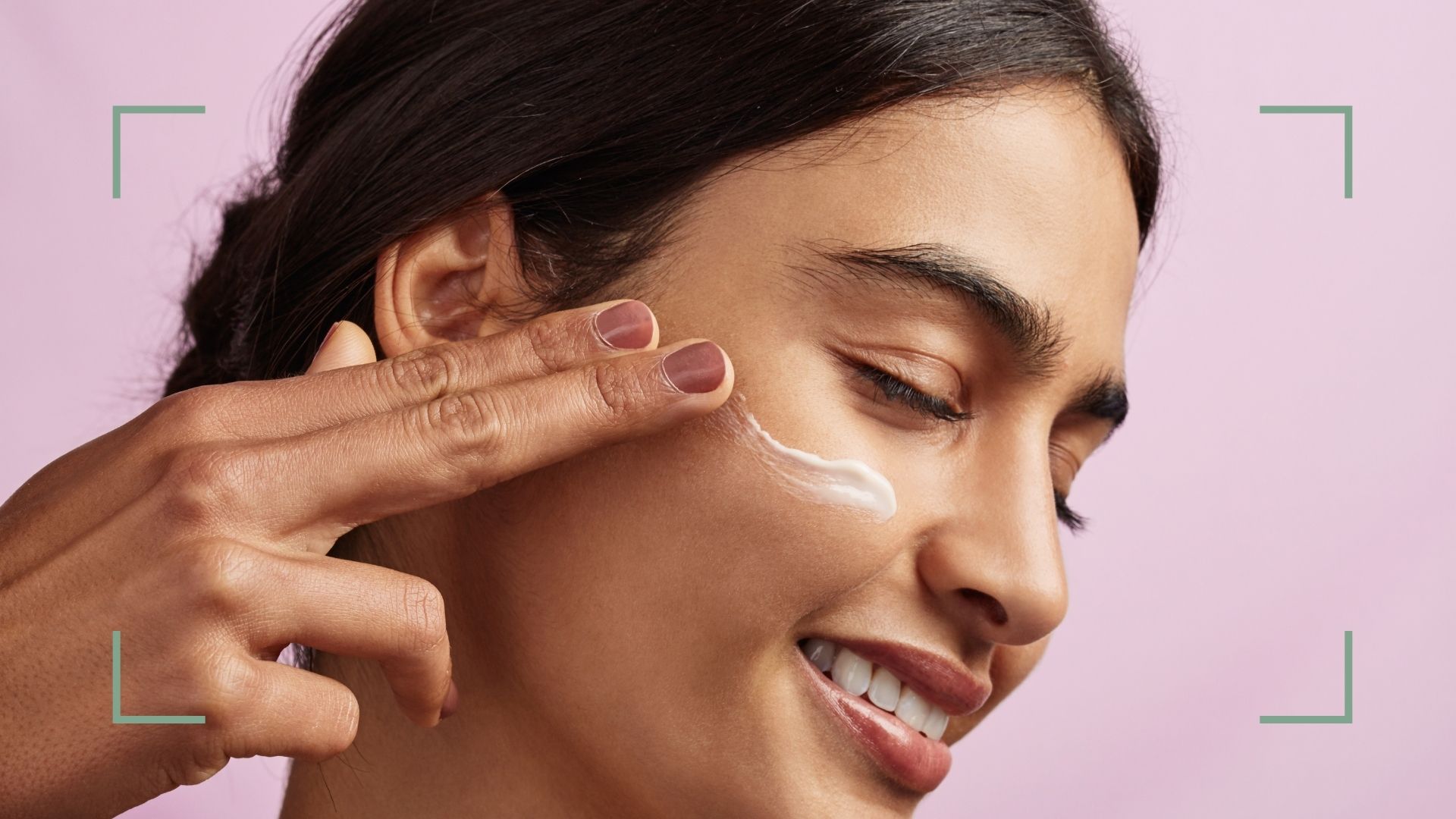

Retinol eye cream is one of the buzziest products in the skincare industry right now—when it comes to slowing down the signs of aging, you’d be hard-pressed to find an active ingredient that gets people talking like retinol.
This Vitamin A derivative is regularly cited as the gold standard in facial serums and is beginning to crop up in many of the best eye creams too. "One of the most important anti-aging ingredients available to us is retinol," says Hollywood esthetician Kate Somerville. "It stimulates collagen, aids in wrinkle reduction, removes environmental damage, reduces scarring, minimizes pore size and helps even out the skin tone. It does it all!"
But does the same ring true when it comes to formulating retinol eye cream? “It most certainly does,” says consultant dermatologist Dr. Justine Kluk, who argues that retinol is one of the most effective ingredients to look for in eye creams, which explains why many of the best eye creams for wrinkles now leverage this hero ingredient.
With a flood of retinol eye creams hitting the market it makes sense to question what retinol eye products can offer your skin—and we've got your answers! w&h has consulted top skin experts and tested a variety of retinol eye creams for every skin type to bring you this guide to using Vitamin A skincare on the eye area.
Five benefits of retinol eye cream
1. It works on fine lines and wrinkles
Lots of people wonder is eye cream necessary, particularly highly active varieties such as retinol eye cream, but experts agree it can be beneficial. The skin around the eye area is about four times thinner than the skin on the rest of the body. As a result, this delicate layer is more susceptible to wrinkles like crow's feet and these lines are often hard to target with a run-of-the-mill eye cream. Retinol provides a welcome upgrade, thanks to its ability to address a range of factors.
“Retinol helps slow the natural collagen breakdown that occurs both as we age and as a result of external factors, such as sun exposure, smoking, and pollution,” explains Dr. Kluk. “It also stimulates new collagen and elastin production, and increases cell turnover, meaning it helps the skin exfoliate itself more effectively.” The result? Smoother, firmer, and more supple skin.
2. It can reduce dark circles
Of all eye concerns, dark circles are among the trickiest to address. A range of factors can cause them including hyperpigmentation. Another common contributor is a loss of fat and collagen around the eyes, which causes the skin around them to become thinner, eyes to look more sunken and the veins underneath to appear more pronounced.
Sign up to our free daily email for the latest royal and entertainment news, interesting opinion, expert advice on styling and beauty trends, and no-nonsense guides to the health and wellness questions you want answered.
Retinol can help with both of these problems, making retinol eye cream one of the best eye creams for dark circles. This is because its collagen-boosting abilities result in a plumping effect on the very thin skin of the lower eyelid. As retinol increases cell turnover and exfoliation, it can also make skin appear more even.
3. It gets results (as long as you're patient)
Unlike many eye creams that make big claims and rarely deliver, the prospects with retinol eye cream are almost guaranteed. “Expect to see some improvement after three months of regular use,” says Dr. Kluk, explaining that this is the point where the skin might start to look and feel smoother. “More pronounced changes, such as a reduction in fine lines, tend to be seen over a period of six to 12 months or more."
Patience pays off with retinol eye cream. When compared with other ingredients, the effects of retinol may take longer to achieve but they are also likely to be longer-lasting. “Sometimes eye creams will also contain ingredients such as the moisturizing agent hyaluronic acid, which gives an immediate, albeit temporary, smoothing and plumping effect,” points out Dr. Kluk. “This would typically wear off by the following day.”
4. It is suitable for almost anyone
Due to retinol’s ability to affect pretty much every aspect of how skin functions, it sits quite comfortably in most people’s skincare routine—although those who are pregnant or breastfeeding should avoid using it.
“Anybody who is concerned with preventing premature aging of the skin around the eyes can benefit from using it,” says Dr. Kluk. As the cells that are key roles in collagen production and skin structure—fibroblasts—start to function and regenerate more slowly from our late 20s, Vitamin A-based skincare such as the best retinol creams can be a worthwhile addition from then onwards.
5. It can be tailored to your tolerance
Retinol eye cream gets a bad rap for side effects, which can include peeling and dryness. That's why understanding how to use retinol properly is key. “Most eye creams containing retinol will contain a low strength, for example, 0.1%, to allow for better tolerance. In comparison, the average starter retinol for the face tends to be around 0.3%.” says Dr Kluk.
"If you are new to using retinol, it’s always safest to start low and build up the strength gradually over weeks or months,’ says Dr. Kluk. Try applying it once a week before moving up to twice a week, and see how you get on. Always use the best face moisturizer afterwards to provide a soothing hydration boost.
If your skin is reaction-prone, try a technique called buffering. “If the skin is sensitive and you want to reduce absorption at certain sites, moisturizer can be applied before the retinol as a semi-barrier,” says Dr. Kluk. If however, your skin just can’t get along with retinol no matter what you do, Dr. Kluk recommends considering other collagen-boosting alternatives, such as peptides or the best Vitamin C serums which offer results in a similar timeframe.
The best retinol eye creams, chosen by our experts
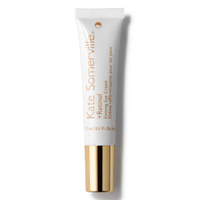
Kate Somerville +Retinol Firming Eye Cream | RRP: $88/£74
This luxurious treatment combines pure retinol with hydrating hyaluronic acid and aloe vera plus nourishing seed oils. The cooling gold tip helps depuff tired eyes and works as a facial massage tool as well.
The Inkey List Retinol Eye Cream | RRP: $9.99/£9.99
Powered by Vitalease (stabilized retinoid compound), this cult classic is one of the best drugstore eye creams on the market. It combats fine lines, wrinkles, hyperpigmentation, and signs of aging. And thanks to hyaluronic acid and glycerin, it's undeniably hydrating.
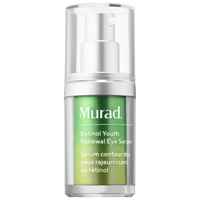
Murad Retinol Youth Renewal Eye Serum | RRP: $85/£65
As a popular heavy-hitter, this serum minimizes the appearance of wrinkles and fine lines—plus delivers a rich dose of hydration to dry skin. It's suitable for all skin types, including sensitive complexions prone to irritation.
La Roche-Posay Redermic R Retinol Eye Cream | RRP: $46.96/£27
This pure retinol eye cream visibly reduces the appearance of crow's feet, dark circles, and puffy eyes. Its formula is a potent contender against signs of anti-aging, yet gentle on sensitive skin.
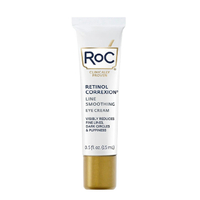
RoC Retinol Correxion Eye Cream | RRP: $24.99/£24.99
An award-winning formula that addresses common anti-aging skincare concerns, from crow's feet and fine lines to wrinkles and loss of skin elasticity. RoC combines retinol with ingredients like Vitamin E to make it safe and gentle for daily use.
Glow Recipe Avocado Melt Retinol Eye Sleeping Mask | RRP: $42/£34
Encased in a chic jar that doubles as vanity candy, this sleeping mask brightens, depuffs, and minimizes the look of dark circles—with a medley of avocado, encapsulated retinol, and coffeeberry. Aesthetics aside, its effective formula has earned a coveted spot in our pick of the best Korean eye creams.
woman&home thanks Dr. Justine Kluk and Kate Somerville for their time and expertise
Ayesha is a freelance beauty writer and when she's not contributing to woman&home she can be found writing about all things cosmetics, hair and self-care in her role as Senior Features Writer for Get The Gloss. She also writes a monthly hair column called ‘Who, What, Hair’ (which combines her love of puns and buns perfectly), in addition to a column exploring the new and exciting options now available for women of darker skin tones called ‘Not Fair’. She’s also been shortlisted for a number of awards including Best Online Beauty Journalist at the Johnson and Johnson Journalism Awards.
